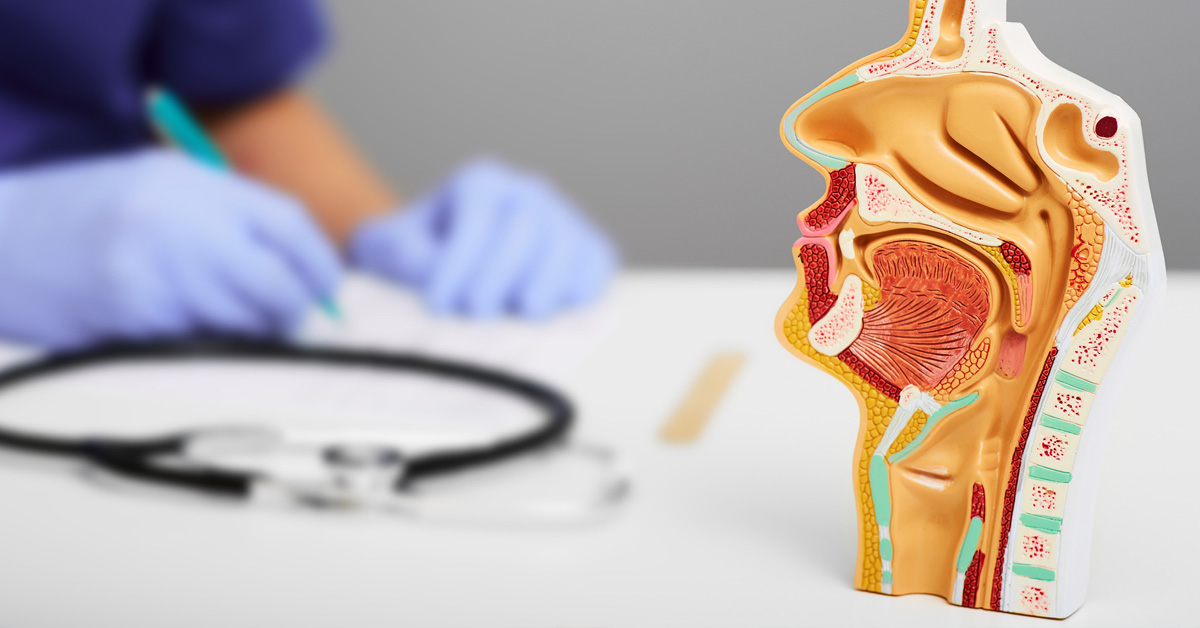Checking out the Field of Otolaryngology: What to Expect When You Speak With an ENT
Otolaryngology, commonly described as ENT, includes the diagnosis and therapy of nose, ear, and throat disorders. For those experiencing associated problems, seeking advice from an ENT expert can offer quality and relief. Comprehending what to expect throughout such assessments is essential for reliable interaction and care. This review will detail vital facets of the ENT experience, consisting of common factors for visits and the processes associated with medical diagnosis and therapy.

Recognizing Otolaryngology: An Introduction
Otolaryngology, usually described as ENT (Nose, throat, and ear) medicine, is a customized branch of medicine that concentrates on the diagnosis and therapy of problems affecting these crucial locations of the body. This field encompasses a wide variety of disorders, including those pertaining to hearing, equilibrium, breathing function, and speech. Otolaryngologists are educated to handle both medical and clinical treatments, utilizing innovative methods and innovations. Their expertise prolongs past typical conditions, attending to concerns such as allergic reactions, sinus infections, and hearing loss. Additionally, they play an important function in the management of head and neck cancers, providing extensive care customized to private person demands. Generally, otolaryngology continues to be vital for preserving wellness and lifestyle in affected people.
Common Reasons to See an ENT Expert
Lots of people look for the expertise of an ENT expert for a selection of factors, reflecting the diverse nature of problems that impact the nose, ear, and throat. Usual concerns consist of chronic sinusitis, which usually results in consistent nasal blockage and face pain. Allergies and their connected signs, such as sneezing and itching, also motivate brows through to these experts (Voice). Hearing loss, whether steady or sudden, is one more significant factor for examination. Additionally, people might look for analysis for throat disorders, including consistent hoarseness or ingesting problems. Sleep apnea, identified by interrupted breathing throughout rest, is regularly resolved by ENT experts. Each of these problems highlights the value of specialized treatment in managing complex ENT-related health problems
Getting ready for Your ENT Appointment
When getting ready for an ENT consultation, it is vital to collect appropriate information and consider any specific issues. People ought to assemble a comprehensive clinical history, consisting of previous ear, nose, or throat problems, surgeries, and present medications. Recording signs and symptoms-- such as period, severity, and frequency-- can supply beneficial insights for the ENT professional. In addition, individuals should prepare a checklist of questions they wish to ask, guaranteeing that all worries are resolved throughout the check out. Bringing along any pertinent medical records or test outcomes can additionally assist the ENT in recognizing the client's problem. People need to confirm their visit information, including time, date, and area, to decrease any type of final complication. Proper prep work can improve the efficiency of the assessment and bring about better end results.
What to Anticipate During the Consultation
As the assessment starts, the client can expect to involve in a complete discussion with the ENT professional regarding their signs and symptoms and clinical background. The professional will certainly ask about the duration, frequency, and extent of symptoms such as hearing loss, nasal blockage, or aching throat. Furthermore, the individual's previous medical conditions, drugs, and any kind of pertinent household history will certainly be evaluated, helping the professional in forming a complete understanding of the client's health. The ENT might additionally ask about lifestyle factors, such as direct exposure to allergens or toxic irritants. This open dialogue establishes a foundation for the examination, ensuring that the person's concerns are addressed and establishing the phase for any kind of needed examinations or suggestions for therapy.
Diagnostic Tests and Procedures in Otolaryngology
An array of basics analysis examinations and procedures are essential in otolaryngology to properly examine and detect problems influencing the nose, throat, and ear. Typical tests include audiometry, which determines hearing feature, and tympanometry, assessing center ear pressure. Nasal endoscopy allows visualization of the nasal passages and sinuses, while laryngoscopy takes a look at the throat and vocal cords. Imaging strategies, such as CT scans and MRIs, other supply comprehensive sights of head and neck frameworks. Allergic reaction screening might also be carried out to recognize triggers for sinus or breathing problems. These diagnostic devices make it possible for ENT specialists to develop a comprehensive understanding of people' problems, guaranteeing tailored and efficient management plans. Correct diagnosis is crucial for successful treatment outcomes in otolaryngology.
Treatment Options Used by ENT Specialists
ENT experts supply a range of therapy choices tailored to address particular conditions affecting the nose, ear, and throat. These therapies range from conservative methods, such as medication and way of living alterations, to even more invasive procedures. As an example, allergies might be taken care of with antihistamines or immunotherapy, while chronic sinusitis might call for nasal corticosteroids or sinus surgery. For hearing loss, ENT professionals usually recommend listening devices or medical interventions like cochlear implants. In cases of throat problems, choices can consist of speech therapy or medical treatments to eliminate blockages. In addition, they may give assistance for managing sleep apnea, consisting of making use of CPAP gadgets or medical interventions. Overall, the goal is to boost individuals' lifestyle via customized treatment and effective therapy methods.
When to Seek Follow-Up Treatment With an ENT
Acknowledging when to look for follow-up treatment with an ENT professional is important for handling continuous signs and symptoms or problems associated with ear, nose, and throat conditions. Clients must take into consideration setting up a follow-up consultation if signs persist in spite of first therapy, such as chronic ear discomfort, nasal congestion, or throat pain. Modifications in hearing, balance issues, or uncommon nasal discharge might also call for more assessment. Additionally, if barton ent a client experiences negative effects from prescribed medications or has actually undergone a procedure, follow-up care is vital to keep an eye on recuperation and address any concerns. Timely consultations can assure effective management of problems, stop possible issues, and supply comfort pertaining to one's health. Looking for follow-up care promotes aggressive wellness administration in otolaryngology.
Regularly Asked Questions

What Credentials Should I Search for in an ENT Specialist?
When looking for an ENT specialist, one need to try to find board accreditation, relevant experience, and solid person reviews. Furthermore, reliable interaction abilities and a thoughtful technique can greatly improve the general therapy experience.
How Do I Choose the Right ENT for My Needs?
Choosing the appropriate ENT specialist includes reviewing their certifications, experience, and individual evaluations (ENT Clinic). It is vital to ponder their communication design and strategy to therapy, ensuring they line up with the individual's details wellness demands and preferences
Are There Any Type Of Risks Connected With ENT Procedures?
The dangers connected with ENT procedures may include infection, blood loss, anesthesia complications, and prospective damages to bordering frameworks. Individuals need to review these dangers with their medical professional to understand private problems and guarantee notified choices.
How Can I Take Care Of Anxiousness Before My ENT Consultation?
To handle stress and anxiety before an appointment, individuals can exercise deep breathing exercises, envision positive end results, prepare questions ahead of time, and look for assistance from good friends or family, fostering a feeling of reassurance and peace.
What Should I Do if I Experience Adverse Effects From Treatment?
The person ought to promptly report them to their healthcare company if side results from therapy take place. Changes to therapy or extra interventions may be necessary to guarantee security and efficiency in managing their problem - Otolaryngology. As the assessment begins, the individual can expect to engage in a comprehensive conversation with the ENT professional regarding their signs and symptoms and medical background. These analysis devices enable ENT professionals to establish an extensive understanding of clients' conditions, ensuring tailored and effective monitoring plans. ENT specialists offer a selection of treatment choices customized to address details problems impacting the ear, throat, and nose. When looking for an ENT expert, one need to look for board certification, relevant experience, and strong individual evaluations. Choosing the right ENT expert includes examining their certifications, experience, and individual reviews